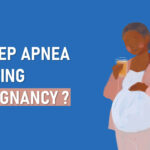- Swastik Clinic, Ahmedabad, GJ, IND
- Call: 8849867169 (For Appointment)
- Mon - Sat: 10 AM - 08 PM
- Sun: Only Emergencies
Why Asthma Gets Worse in Winter

Why Asthma Gets Worse in Winter
For people with asthma, winter can be the most difficult time of the year. Cold, dry air and sudden shifts in the weather can irritate your airways, causing you to produce more mucus. Even exercising in the cold can bring on asthma triggers such as coughing and wheezing even faster.
What’s the connection between cold weather and asthma?
There are many reasons why your asthma symptoms get worse in the winter. It could be due to one or more of the following reasons:
Cold air is dry
The airways in your lungs are protected by a layer of fluid. Cold air evaporates this fluid, causing your airways irritated and inflamed.
Cold air increases mucus
Your airways are also lined with a layer of protective mucus. When you are exposed to cold weather, your body produces more mucus, (thicker and sticker than normal). This extra mucus increases the risk of catching cold or other infections.
Exercise in cold weather
Exercise requires increased lung capacity. As you breath in cold air, your airways become restricted and thereby triggering asthma symptoms such as cough and breathlessness.
Asthma symptoms in winter – are they any different than in other months?
Asthma symptoms in winter are same as the symptoms you get in other months. The only difference you notice is that the symptoms are worse than usual, and more difficult to control and it may occur more often. Symptoms may include:
- Chest pain
- Coughing
- Shortness of breath
- Tightness in the chest
- Wheezing
How can you avoid asthma attacks in the cold?
If you have asthma, you already know prevention is your best strategy. Here’re few tips:
- Drink lot of fluids in the winter. This helps keeping your mucus in your lings thinner.
- Wash your hands often in soap and water to prevent respiratory illnesses.
- Vacuum and dust your home often to remove indoor asthma allergens.
- Breath through your nose when you are outside because your nasal passages warm the air before it reaches your lungs.
- Get the flu vaccine.
- Find alternative ways to exercise if you usually exercise outdoors.
- Carry an inhaler with you in case you have an asthma attack.
- Try to avoid anyone who appears to be sick.
- Take your meds on time. It’s always important to take asthma medications as prescribed. But that’s especially true in the winter.
If you know you’re prone to winter month attacks, make a plan with your pulmonologist. Follow your asthma action care plan you and your provider discussed to get your symptoms under control.
Recent Posts
Archives
- April 2022
- January 2022
- December 2021
- November 2021
- August 2021
- July 2021
- June 2021
- May 2021
- April 2021
- March 2021
- February 2021
- January 2021
- December 2020
- November 2020
- October 2020
- September 2020
- August 2020
- July 2020
- June 2020
- May 2020
- April 2020
- March 2020
- February 2020
- January 2020
- December 2019
- November 2019
- October 2019
- September 2019
- August 2019
- July 2019
Categories
Recent Posts


I Got Covid-19 & Have Asthma – What Now?
09th Jan 2022
